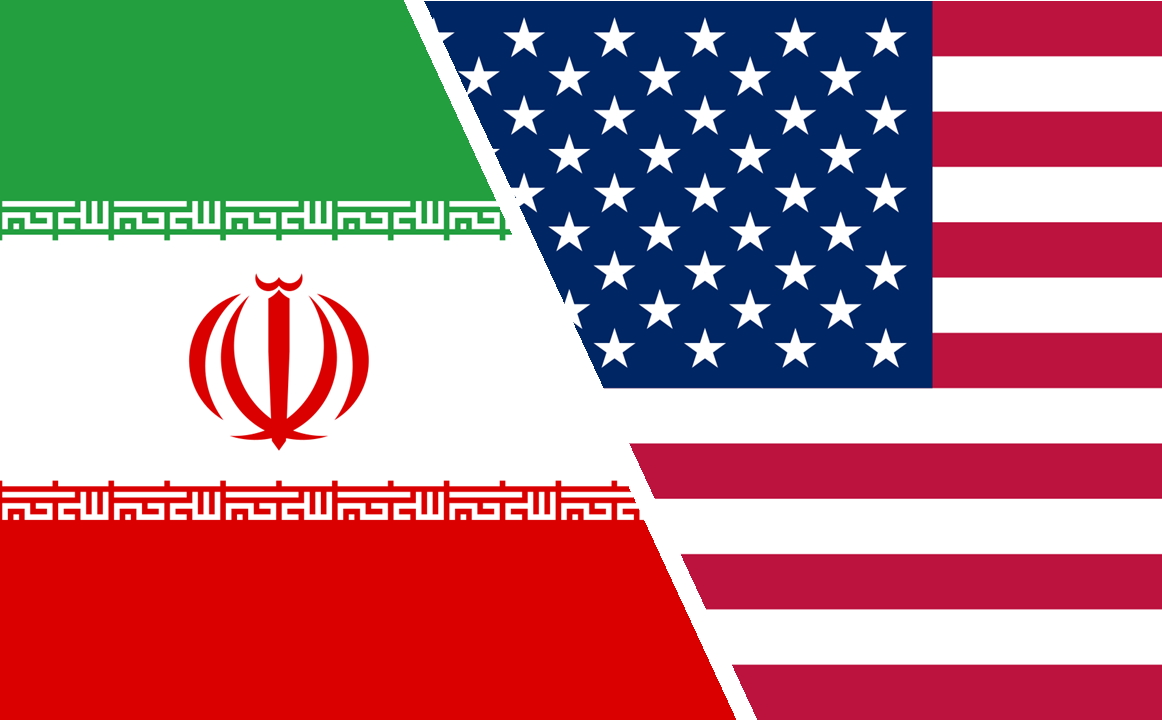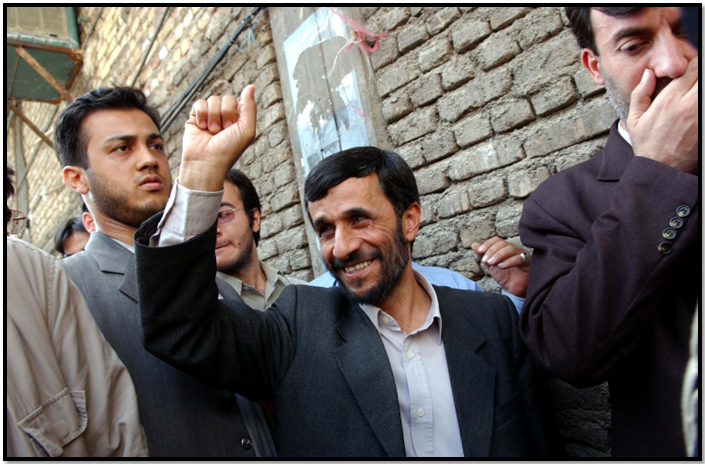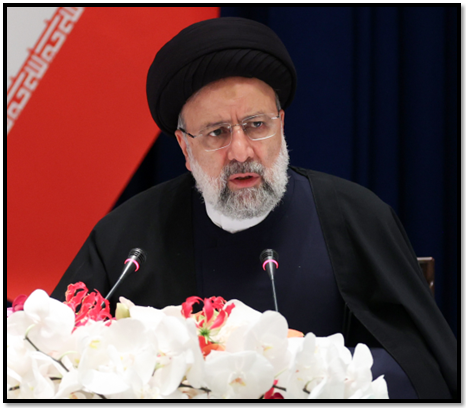On Sept. 18, 2023, the United States and Iran completed a rare prisoner swap after more than a year of quiet diplomacy mediated by Oman and Qatar. Iranian President Ebrahim Raisi described the swap as “purely humanitarian” and a potential “confidence builder” toward future diplomacy. President Joe Biden said that the release of Siamak Namazi, Morad Tahbaz, Emad Shargi, and two citizens who wish to remain private “will soon be reunited with their loved ones—after enduring years of agony, uncertainty, and suffering.”
The carefully choreographed steps included:
- Aug. 10, 2023: Iran released four Americans from notorious Evin Prison in Tehran to house arrest at a hotel in the capital. One additional detainee, an unnamed woman, had already been released into house arrest.
- Mid-August 2023: Iran’s frozen oil revenues in South Korean banks, equivalent to $6 billion, were reportedly transferred to Switzerland’s central bank for conversion from Korean won to dollars and then euros. The funds were from longstanding oil purchases by South Korea, which seized the money after the U.S. reimposed sanctions—and made South Korea liable for third-party sanctions as well. The transfer and conversion took weeks to complete.
- Sept. 8-18, 2023: Secretary of State Antony Blinken issued a waiver allowing foreign banks to transfer the frozen Iranian assets from South Korea via Europe to restricted accounts in Qatar. The transfer was complicated and time-consuming because it required financial institutions from South Korea, Germany, Ireland, Switzerland and then Qatar. On Sept. 18, Mohammadreza Farzin, the governor of the Central Bank of Iran, announced that 5.573 billion euros (approximately $6 billion) had been deposited in six Iranian accounts at Al-Ahli and Dukhan banks in Qatar. Iran has no direct access to funds, which will continue to be controlled by Qatar and restricted to the purchase of humanitarian goods, such as food, medicine, educational material and agricultural products.
- Sept. 18, 2023: Iran released five Americans who flew from Tehran to Doha and then to Washington. The United States released five Iranians.
Financial terms
The funds in question were Iranian assets in Korean won – not U.S. dollars. Since at least 2018, South Korea had held Iranian oil revenues due for its past oil purchases worth approximately $6 billion. Iran had long sought, unsuccessfully, to repatriate the funds.
 Technically, U.S. sanctions always allowed Tehran to purchase humanitarian goods. “Under U.S. sanctions regulations, these funds have been legally available for certain forms of bilateral and humanitarian trade. These are not frozen funds,” White House Coordinator for the Middle East and North Africa Brett McGurk told The Washington Post on Sept. 18, 2023.
Technically, U.S. sanctions always allowed Tehran to purchase humanitarian goods. “Under U.S. sanctions regulations, these funds have been legally available for certain forms of bilateral and humanitarian trade. These are not frozen funds,” White House Coordinator for the Middle East and North Africa Brett McGurk told The Washington Post on Sept. 18, 2023.
But in practice, U.S. sanctions, reimposed after President Donald Trump abandoned the Iran nuclear deal in 2018, had complicated Iran’s ability to access the money because of fears by countries holding its funds would face third-party sanctions. In January 2022, the Korean government cooperated with the U.S. Treasury to use some of the assets to pay Iran’s delinquent U.N. dues.
For the 2023 prisoner swap, the United States issued a waiver allowing the transfer of the assets to six Iranian banks held by Al-Ahli and Dukhan banks in Qatar. “Under terms that provide confidence, the funds will be spent only on a limited category of humanitarian trade: food, medicine and agricultural products,” McGurk said. “The funds are subject to more legal restrictions now than when they were in South Korea.” Qatar will oversee transactions, and the U.S. Treasury will also have oversight through a special channel.
Five Americans released
On Sept. 18, 2023, Iran permitted five Americans to leave the country on a Qatar Airways flight to Doha. They included:
- Siamak Namazi: In October 2015, the Dubai-based businessman was arrested during a trip to Iran. In October 2016, he was sentenced to 10 years imprisonment for collaborating with an enemy state. Namazi had primarily worked for consultancies focused on energy before his detention. In 2005, he was a public policy scholar at the Woodrow Wilson International Center for Scholars. He also did a stint at the National Endowment for Democracy in 2006. Baquer Namazi, Siamak’s father, traveled to Iran to secure his son’s release but was also sentenced to 10 years for espionage in 2016. In October 2022, Iran released the elder Namazi so that he could seek medical treatment abroad.
- Emad Shargi: In April 2018, the businessman was detained while working for a venture capital fund involved in technology. After being interrogated and held in solitary confinement, he was released on bail in December 2018. A year later, he was cleared of all spying and national security charges. But his passport was withheld, and he was not permitted to leave Iran. In November 2020, Shargi was summoned to court and convicted of espionage without a trial. He was sentenced to 10 years in prison.
- Morad Tahbaz: In January 2018, Tahbaz and eight other environmental activists were detained. In November 2019, Tahbaz was sentenced to 10 years in prison for espionage. Tahbaz and his colleagues had been using cameras to track endangered Asiatic cheetahs and were accused of using that work as a cover for collecting “classified information.”
- An unnamed businessman
- An unnamed woman and former U.N. employee
“As a hostage, 2,898 days of what should have been the best days of my life were stolen from me and supplanted with torment,” Namazi said after his release. “What I want more than anything is assurance that no one else will know the interminable anguish that my family and I experienced.” Iran also allowed Namazi’s mother, Effie, and Tahbaz’s wife, Vida, to leave the country. They had been subject to travel bans but had not been imprisoned. All seven Americans landed at Fort Belvoir in Virgina, a military base south of Washington D.C., on Sept. 19, 2023.
Five Iranians released
On Sept. 18, 2023, the United States released five imprisoned Iranians. Four had allegedly violated U.S. sanctions, and another had acted as an unregistered foreign agent of the Islamic Republic. They included:
- Mehrdad Moein Ansari: In 2019, the Iranian citizen and resident of the United Arab Emirates and Germany was arrested for plotting to secure dual-use materials with potential military and nuclear applications for the Islamic Republic. In September 2021, he was sentenced to more than five years in prison.
- Kambiz Attar Kashani: In January 2022, the U.S.-Iranian citizen was arrested for conspiring to export goods and technology to the Central Bank of Iran. He had used two front companies based in the United Arab Emirates to procure equipment and software for Iran. In February 2023, he was sentenced to 30 months in prison.
- Reza Sarhangpour Kafrani: The Iranian and resident of Canada was arrested for sending laboratory materials to the Islamic Republic. He had shipped the equipment—controlled for nuclear nonproliferation purposes—to Iran through Canada and the United Arab Emirates. He was indicted in July 2021 with 10 crimes, some of which carried maximum prison sentences of 20 years.
- Amin Hasanzadeh: In November 2019, the Iranian and permanent U.S. resident was arrested on charges of fraud and interstate transportation of stolen property. Federal prosecutors accused Hasanzadeh of stealing sensitive technical data from his employer and sending it to his brother, who is connected to the Iranian military. He was indicted in December 2020.
- Kaveh Afrasiabi: In January 2021, the U.S.-based Iranian was arrested for failing to report his status as a foreign agent in the United States. He had lobbied the State Department and a congressman for “policies favorable to Iran” while on the payroll of Iran’s U.N. mission since around 2007. His alleged crimes carried a maximum of 10 years in prison.
#BREAKING The US has released five Iranian prisoners as part of a prisoner swap deal which secured the release of five American prisoners and unfroze $6 billion in Iranian assets.
— Iran International English (@IranIntl_En) September 18, 2023
Two of the five Iranians, Mehrdad Moein-Ansari and Reza Sarhangpour, have arrived in Doha as they… pic.twitter.com/oqfCwTVGIp
Mehrdad Moein Ansari and Reza Sarhangpour Kafrani flew to Doha on their way back to Iran. Two other Iranians decided to remain in the United States, and the other was due to travel to a third country to join family members.
U.S. imposes new sanctions
On Sept. 18, 2023, the U.S. Treasury sanctioned Mahmoud Ahmadinejad, who was the president of Iran from 2005 to 2013, for supporting the Ministry of Intelligence and Security (MOIS). For decades, MOIS has detained foreigners on spurious charges. “Today’s action targets Mahmoud Ahmadinejad for enabling the wrongful detention of our citizens, causing immeasurable pain and suffering for both the victims and their families,” said Under Secretary of the Treasury for Terrorism and Financial Intelligence Brian Nelson. The sanctions froze any assets Ahmadinejad might hold in the United States.

Concurrently, the State Department designated the MOIS for involvement in the wrongful detention of Americans and Ahmadinejad for supporting the MOIS. It also imposed visa restrictions on three Iranian government officials for involvement in human rights abuses or hostage taking.
The actions were taken pursuant to The Robert Levinson Hostage Recovery and Hostage-Taking Accountability Act and Executive Order 14078, which honored Bob Levinson, a retired FBI agent who disappeared in Iran in 2007 while participating in a rogue CIA mission. For years, Iran has refused to account for his whereabouts. Levinson was abducted while Ahmadinejad was in office. In 2020, U.S. officials concluded that Levinson had died in Iranian custody at some point before the outbreak of COVID-19.
On Sept. 19, 2023, the U.S. Treasury imposed sanctions on seven people and four companies based in Iran, China, Russia, and Turkey for supporting Iran’s unmanned aerial vehicle (UAV) and military aircraft development. “Iran’s continued, deliberate proliferation of its UAVs enables Russia, its proxies in the Middle East, and other destabilizing actors to undermine global stability,” said Under Secretary of the Treasury for Terrorism and Financial Intelligence Brian Nelson. The move further signaled that Biden administration was not going to ease pressure on Iran.
Potential future diplomacy
U.S. officials emphasized that the indirect negotiations with Iran over the detainees were separate from other engagements with Tehran. The swap “does not change our relationship with Iran in any way,” a senior White House official told reporters on Sept. 17, 2023. “Iran is an adversary and a state sponsor of terrorism. We will hold them accountable wherever possible.”
When asked if indirect talks on the Iran’s nuclear program were expected in the coming months, a senior White House official responded, “Absolutely not.” The official said added that the Biden administration would not close the door entirely to diplomacy but would maintain principled standards.

The swap “doesn’t speak to anything else the relationship,” Secretary of State Antony Blinken told reporters on Sept. 18, 2023. He also did not anticipate any imminent talks with Iran. “In this moment, we’re not engaged on that [nuclear issue], but we’ll see in the future if there are opportunities.”
When asked if there were any changes in Iran’s behavior coinciding with the prisoner swap, White House Coordinator for Strategic Communications John Kirby said it was a mixed bag. “We have definitely seen a decrease in attacks on our troops in Iraq and Syria. We think that has much to do with the strong response to the last couple that had happened months ago.” But he noted that Iran was continuing to harass shipping in the Persian Gulf and Strait of Hormuz. “They continue to support Russia’s war in Ukraine by providing drones and now working with Russia on a manufacturing facility… They continue to try to improve their already improving ballistic missile program. And yes, they continue to support terrorist networks,” Kirby added.
Kirby also acknowledged reports that Iran had slowed its enrichment of uranium, which could be used to fuel a nuclear weapon. “If reports are true, and they have slowed down their spinning of centrifuges, that’s a good thing for everybody.”
Iranian President Ebrahim Raisi described the swap as a “confidence builder” that could lead to future “humanitarian actions.” But he also blamed Washington for delaying the swap in remarks to journalists on Sept. 18, 2023.
Qatar was optimistic about the future. “I cannot claim that this will lead to a nuclear deal, but it’s going definitely to lead to a better environment,” Prime Minister Mohammed bin Abdulrahman Al-Thani told CNN on Sept. 19, 2023. “What happened yesterday actually was a great building block for rebuilding the confidence between the two countries.”
Related Material:
